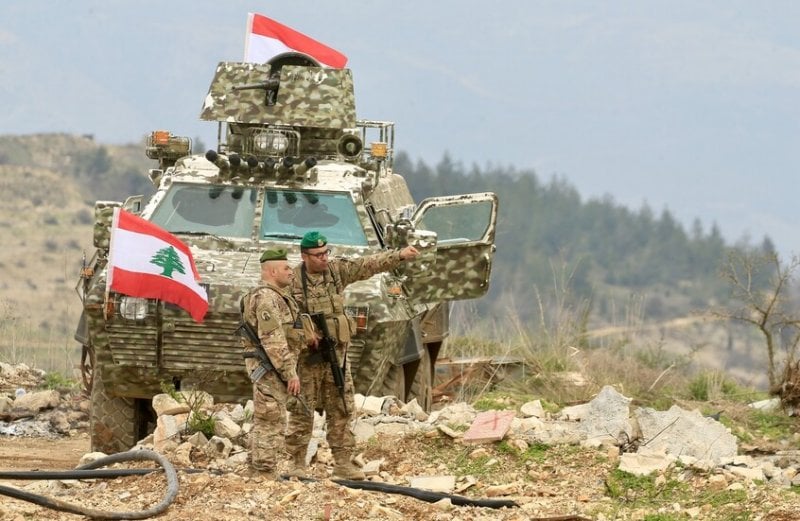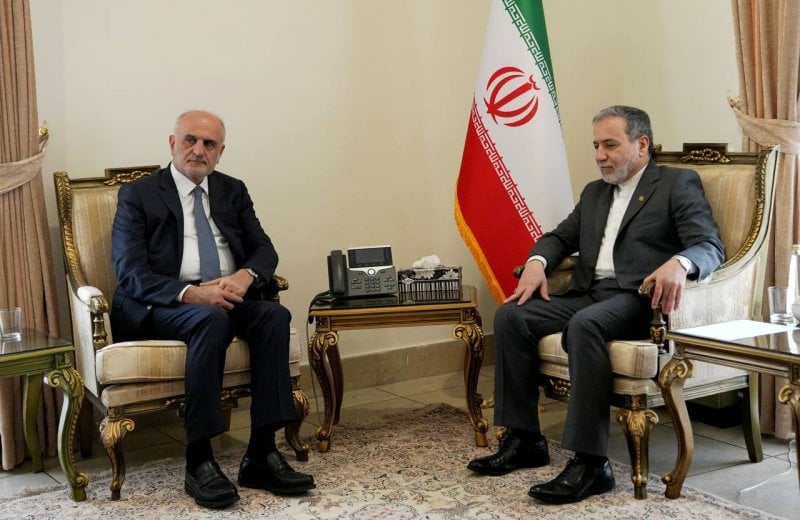
في لبنان، تدور التكهنات حول الدوافع الكامنة وراء الخطوات التصعيدية الأخيرة التي اتخذتها واشنطن تجاه المؤسسة العسكرية. يتجنب المسؤولون تقديم تفسير قاطع، سواء كان إلغاء زيارة قائد الجيش رودولف هيكل إلى واشنطن مجرد تحذير عابر ومحدود، أم مقدمة لأزمة أكبر، سبق أن تحدث عنها “الصقور” في دوائر القرار في واشنطن، بشكل صريح في بيروت.
يمكن فهم الإنذار الأميركي في سياق الضغوط “غير المحقة” التي يمارسها “الصقور” في الإدارة الأميركية على الجيش اللبناني، كما يوضح الكاتب والمحلل السياسي في واشنطن وسام يافي. هذه الضغوط تهدف إلى حصر السلاح في شمال نهر الليطاني وفي البقاع، على الرغم من أن الجيش يعمل ضمن إمكاناته وظروفه لتنفيذ مهامه. في المقابل، لا تساعد السياسة الأميركية نفسها، من خلال الضغط على إسرائيل، لأن التصعيد الإسرائيلي يبرر بقاء سلاح “حزب الله”، وذلك “ليس لأن الجيش يرفض هذا الأمر، إنما لأنه يعجز عن إقناع الحزب بتسليم سلاحه شمال الليطاني في ظل استمرار التصعيد الإسرائيلي”.
ينقل الكاتب يافي ل عن مصادر مطلعة في واشنطن، أن الجيش يؤدي مهمته بشكل كامل في منطقة جنوب الليطاني، لكن “المشكلة اليوم هي في قراءة اتفاق وقف النار من قبل الحزب ومن قبل إسرائيل، حيث أن الحزب يعتبر أن حصر السلاح محصور بجنوب الليطاني فيما إسرائيل تريد أن تشمل العملية كل لبنان، ما يقتضي توضيح هذه المسألة”.
على الرغم من ذلك، يرى يافي أن الجيش ينفذ خطة حصر السلاح في جنوب الليطاني، لكن السياسة الأميركية تتعرض لضغط من إسرائيل، وكأن “إسرائيل تنقل مأزقها السياسي الداخلي إلى مشكلة مع لبنان”. لذلك، يجب على اللبنانيين الحذر في المرحلة المقبلة، وتبني “موقفاً موحداً من الجيش وحمايته من أي خلاف داخلي، قد يؤدي إلى انقسام اللبنانيين، لأنه إذا حصل هكذا انقسام، فلن يساعد السياسة الأميركية في المنطقة، لا في المدى القصير ولا المدى البعيد، خصوصاً وأن الإدارة الأميركية قد راهنت على الجيش اللبناني”.
وحول أسباب إلغاء لقاءات قائد الجيش، يشير يافي إلى أن ما تم الإعلان عنه لا يمثل سوى أحد الأسباب، كما ذكر السيناتور ليندسي غراهام. غياب التفسيرات العسكرية أو السياسية حول التعاون مع لبنان يشير إلى أن جزءاً من الإدارة الأميركية لا يرى مشكلة في أداء الجيش اللبناني، بينما الجزء الآخر، المكون من “الصقور”، يريد من الجيش القيام بأكثر مما يفعله في جنوب الليطاني، لكنه لا يدرك أن الجيش يبذل كل الجهود اللازمة لتنفيذ خطة حصر السلاح، وأنه لا يستطيع فرض تسليم السلاح بالقوة في كل لبنان.
ويلفت يافي إلى ما يتردد في واشنطن عن أن الحزب يعيد تسليح نفسه، معتبراً أن السؤال “لا ينحصر على هذا الأمر، إنما يجب أن يتضمن تساؤلات حول لماذا لا تفرض واشنطن التي ترعى عمل لجنة الميكانيزم، على إسرائيل أن تنسحب من الأراضي اللبنانية لكي تنزع أي ذريعة لإعادة التسليح”.
وفي هذا السياق، يتحدث يافي عن نقاشات وخلافات داخل الإدارة الأميركية، مشيراً إلى معضلة أو مأزق في القرار حول المستفيد من ترك لبنان لمصيره، لأنه قد يخدم مصالح خصوم أميركا وليس مصالحها. بالتالي، إذا كانت واشنطن تريد تحقيق مصلحتها، لأنها عادةً تقوم بما هو مصلحة إسرائيل، فإن هذه المصلحة تقتضي أن يكون لها وجود في لبنان، وهو ما سبق أن ألمح إليه ليندسي غراهام، وهو نائب من “الصقور” في الكونغرس، الذي تحدث عن تعددية لبنان.
لذلك، لا يعتقد يافي أن واشنطن قررت التخلي عن لبنان، بل يرى أن ما حدث هو “لعبة جيوسياسية قد تمهد لضربة إسرائيلية أو مجرد لعبة للضغط على لبنان”، مع العلم أن “الضغط عبر ورقة الجيش اللبناني لن يحقق أي هدف لأن الجيش في الأساس ليس متلكئاً، وهو يقوم بواجباته وفق إمكاناته، وعلى الإدارة الأميركية تقبّل هذا الأمر بطريقة أو بأخرى”.
In Lebanon, speculation is swirling about the motives behind Washington’s recent escalatory steps towards the military establishment. Officials avoid providing a definitive explanation, whether the cancellation of Army Commander Rudolph Helkel’s visit to Washington is just a fleeting and limited warning, or a prelude to a larger crisis, which the “hawks” in Washington’s decision-making circles have already spoken about explicitly in Beirut.
The American warning can be understood in the context of the “unjustified” pressure exerted by the “hawks” in the American administration on the Lebanese army, as explained by writer and political analyst in Washington, Wissam Yafi. This pressure aims to confine weapons to the north of the Litani River and in the Bekaa, even though the army is working within its capabilities and circumstances to carry out its tasks. In return, American policy itself does not help by putting pressure on Israel, because the Israeli escalation justifies the remaining weapons of “Hezbollah,” and that is “not because the army rejects this, but because it is unable to convince the party to hand over its weapons north of the Litani in light of the continued Israeli escalation.”
The writer Yafi conveys from informed sources in Washington that the army is fully performing its mission in the area south of the Litani, but “the problem today is in the interpretation of the ceasefire agreement by the party and by Israel, where the party believes that confining weapons is limited to the south of the Litani, while Israel wants the operation to include all of Lebanon, which requires clarification of this issue.”
Despite this, Yafi believes that the army is implementing the plan to confine weapons to the south of the Litani, but American policy is under pressure from Israel, as if “Israel is transferring its internal political impasse into a problem with Lebanon.” Therefore, the Lebanese must be cautious in the coming stage, and adopt “a unified position on the army and protect it from any internal dispute that may lead to a division of the Lebanese, because if such a division occurs, it will not help American policy in the region, neither in the short term nor in the long term, especially since the American administration has bet on the Lebanese army.”
Regarding the reasons for canceling the army commander’s meetings, Yafi points out that what has been announced represents only one of the reasons, as Senator Lindsey Graham mentioned. The absence of military or political explanations about cooperation with Lebanon indicates that part of the American administration does not see a problem with the performance of the Lebanese army, while the other part, consisting of “hawks,” wants the army to do more than it is doing in the south of the Litani, but it does not realize that the army is making every effort to implement the plan to confine weapons, and that it cannot forcibly impose the surrender of weapons in all of Lebanon.
Yafi draws attention to what is being circulated in Washington about the party rearming itself, considering that the question “is not limited to this, but should include questions about why Washington, which sponsors the work of the Mechanism Committee, does not force Israel to withdraw from the Lebanese territories in order to remove any pretext for rearmament.”
In this context, Yafi speaks of discussions and disagreements within the American administration, referring to a dilemma or impasse in the decision about who benefits from leaving Lebanon to its fate, because it may serve the interests of America’s adversaries and not its own interests. Therefore, if Washington wants to achieve its interests, because it usually does what is in Israel’s interest, then this interest requires it to have a presence in Lebanon, which Lindsey Graham, a “hawk” congressman, has previously hinted at, who spoke of Lebanon’s pluralism.
Therefore, Yafi does not believe that Washington has decided to abandon Lebanon, but believes that what happened is “a geopolitical game that may pave the way for an Israeli strike or just a game to put pressure on Lebanon,” knowing that “pressure through the Lebanese army card will not achieve any goal because the army is basically not slow, and it is carrying out its duties according to its capabilities, and the American administration must accept this in one way or another.”

















